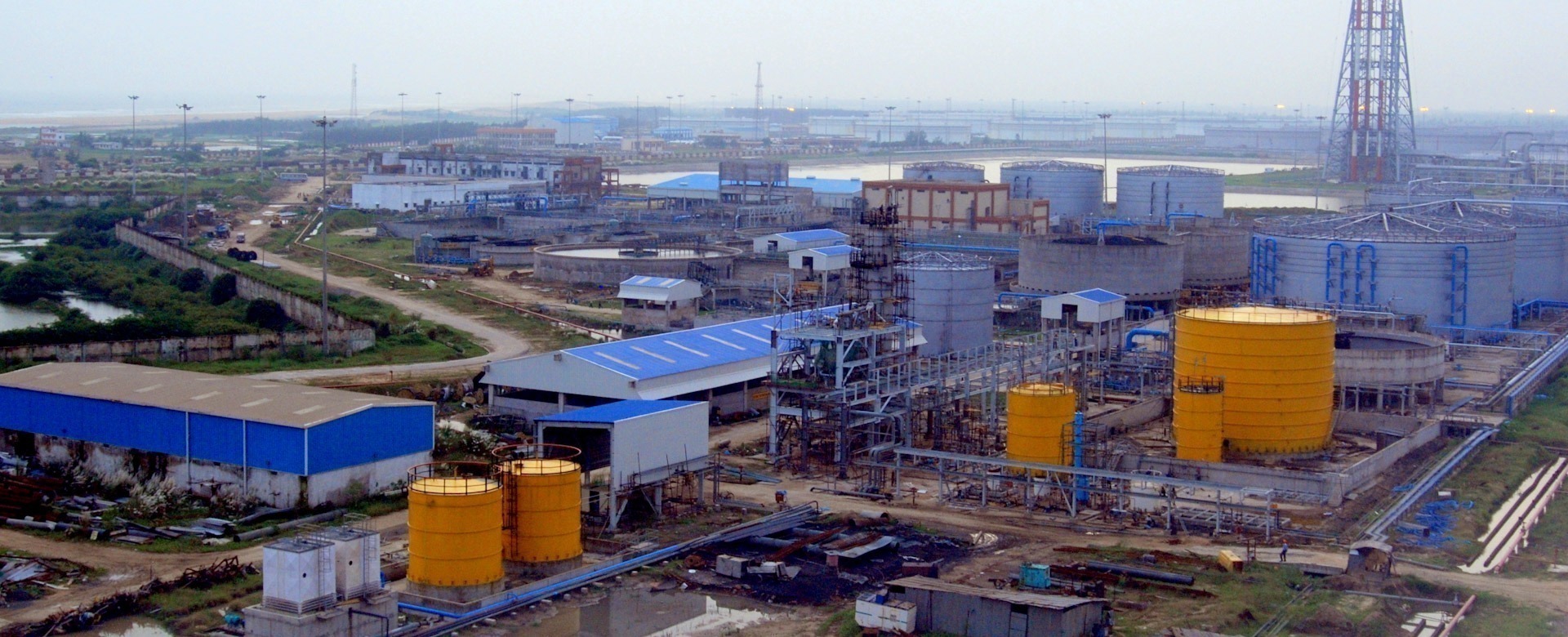
IOCL Paradip ETP: outstanding contribution in water efficiency & conservation
Initial state
The port town of Paradip in Jagatsinghpur district, Odisha was facing acute drinking water shortage due to over exploitation of groundwater resources by industries surrounding the town. The port town is home to about two lakh people.
IOCL’s refinery at Paradip is also one among the industries relying on the water sources available around Paradip. A refinery requires huge amount of water for its daily operations. The water crisis became more severe during the summer. Realizing the fact that “Drinking water is the fundamental right of living beings”, IOCL decided to set-up an effluent treatment and water reclamation plant inside its premises to reduce the dependency on external water sources and to prioritize freshwater for the residents of Paradip.
Challenges
Efficient treatment and recycle of the complex effluent generated by the refinery. Need for a proven and innovative blend of processes based on the variation and contamination in the effluent. To attain more efficiency in the process for obtaining greater volume of water that can be reused as a significant contribution towards conservation of fresh water.
The solution
WABAG was entrusted with the design, engineering, procurement, construction, installation, and start-up and test operation of an environmental friendly and cost efficient water management system for IOCL Paradip.
The effluent treatment and recycling plant, which is the largest industrial recycling plant in India, ensures this by recycling around 54,000 m3 of treated water every day for the refinery. Enabling water reuse of such a huge quantum by WABAG’s processes is outstanding in nature and sets a precedent for similar sustainable water management infrastructure in upcoming refineries. By ensuring maximum reuse of the generated effluent for application as process water in the refinery, dependence on freshwater is reduced by over 17,000 ML every year, helping prioritize fresh water for irrigation & domestic purposes, the priority sectors in India.
Technologies
The effluent is a cocktail of Oily water, stripped sour water, spent caustic, cooling tower blow down, sanitary wastewater & DM Plant regeneration waste which could severely impact the environment if discharged untreated.
This complex effluent is treated in a number of stages comprising free oil removal through API and TPI separator, emulsified oil removal through DAF (Dissolved Air Flotation), biological treatment using bio-tower and activated sludge process, treatment for spent caustic and treatment for landfill leachate. Subsequently, the treated effluent is subjected to further treatment (Ultra Filtration & High Efficiency Reverse Osmosis achieving a consistent recovery rate of around 85%) to enable reuse in the refinery. The concept is rounded off by final sludge treatment with thickening and dewatering in centrifuges.

The project highlights a comprehensive treatment model for a complex effluent where WABAG’s vision for eco-friendly solutions is reflected in the treatment of VOC (Volatile Organic Compounds) and passing of RO reject water through a hard COD management unit before discharge into the sea. This ensures the environment around the refinery is not polluted with harmful contaminants.

Global Recognition
ASSOCHAM honoured WABAG with Water Management Excellence Awards 2018 for “Outstanding Contribution in Water Efficiency & Conservation” for its comprehensive water management system for IOCL, Paradip at the National Conference-cum-Expo & Awards in Water Management, New Delhi.

Conclusion
Oil & Gas is the one of the major growth drivers of India’s economy. With a no. of mega refineries and petrochemical complexes planned in the next 3 years, the demand for water for process applications in such complexes is expected to grow manifold. In view of India’s water scenario, where the per capita availability is reducing, there is a need to provide feasible and sustainable water solutions. This will benefit in three ways. First, ensuring water security for industries, thus averting shutdowns, enhancing productivity. Second, water reduction in burden on limited freshwater sources available. The limited freshwater can be prioritized for domestic and agricultural consumption. Third, eco-friendly discharge of harmful and complex effluents is ensured in line with global environmental norms.



